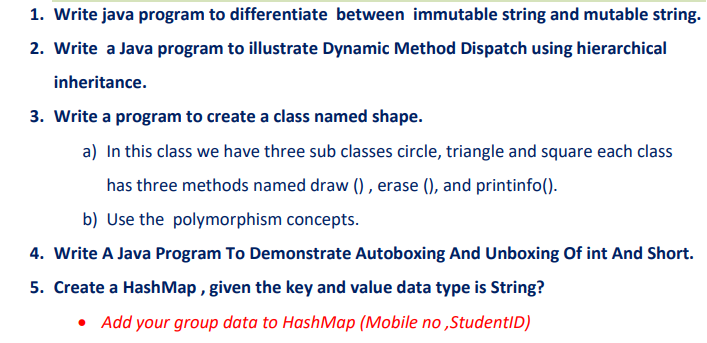Why Are Strings Immutable in Java? Best Practices and Use Cases
Why Are Strings Immutable in Java? Best Practices and Use Cases
Blog Article
Immutable Strings: A Secret Element in Ensuring Data Uniformity and Reliability
In the realm of information monitoring, the relevance of unalterable strings can not be overstated. The principle of unalterable strings transcends mere formality; it is a cornerstone in the complicated web of data governance.
The Concept of Unalterable Strings
Unalterable strings, an essential idea in shows, describe strings that can not be changed as soon as they are produced. Essentially, when a string value is appointed, any kind of procedure that shows up to modify the string in fact creates a new string. This immutability guarantees data uniformity and integrity in applications, as it protects against unanticipated modifications to the original information.
Advantages in Data Consistency

Information uniformity is essential in different elements of software application advancement, consisting of data source monitoring, multi-threaded environments, and distributed systems (Why are strings immutable in Java?). Unalterable strings add considerably to achieving this uniformity by preventing data corruption due to concurrent gain access to. In situations where numerous procedures or threads communicate with the same information simultaneously, unalterable strings function as a safeguard against race conditions and synchronization issues
In addition, the immutability of strings streamlines debugging and testing procedures. With immutable strings, programmers can trust that as soon as a string is established, it will stay unchanged, making it easier to trace the resource of mistakes and guaranteeing that examination cases create constant results. This dependability in information managing ultimately results in extra durable and steady applications.

Implementing Unalterable Strings
Ensuring the immutability of strings needs a thoughtful method to their execution in software application development. As soon as a string item is created, one key approach is to make string courses in a method that avoids modifications. By making strings unalterable, designers can improve data consistency and reliability in their applications.
To implement unalterable strings efficiently, developers must prefer producing new string objects instead than customizing existing ones. This technique guarantees that as soon as a string is assigned a value, it can not be transformed. Furthermore, any type of procedure that shows up to customize the string should produce a brand-new string with the wanted adjustments as opposed to modifying the initial.
Moreover, utilizing unalterable strings can simplify click over here now concurrency management in multi-threaded atmospheres. Since immutable strings can not be changed after production, they can be safely shared among multiple strings without the risk of information corruption.
Duty in Dependability Guarantee
In software program development, the usage of immutable strings plays an important function in making certain the reliability of data procedures. Unalterable strings, once created, can not be changed, ensuring that the data they represent remains constant throughout the application's execution. This immutability residential property gives a level of assurance that the data being processed will not be inadvertently transformed, resulting in unexpected results or mistakes in the system.
By integrating immutable strings right into software design, programmers can improve the integrity of their applications by minimizing the risks connected with mutable information - Why are strings immutable in Java?. Unalterable strings aid in avoiding information corruption or unintentional modifications, which can be particularly crucial when managing delicate details or when information integrity is paramount
Moreover, making use of immutable strings streamlines simultaneous handling, as multiple threads can safely gain access to and share string information without the risk of one thread altering the content while another is reviewing it. This aspect contributes substantially to the general dependability of the software system, ensuring predictable and regular actions in information handling operations.
Applications and System Assimilation
The smooth assimilation of immutable strings into various applications and systems is crucial for making sure durable information uniformity and dependability across diverse technical settings - Why are strings immutable in Java?. Immutable strings play an important function in enhancing the honesty of data exchanges and communications within complex software environments. By integrating unalterable strings right into applications, programmers can minimize the threats connected with data tampering, unapproved alterations, and inadvertent modifications, therefore strengthening the overall safety and security check my source stance of the system
In the context of system combination, unalterable strings function as a fundamental component for developing protected interaction channels and assisting in seamless information transfers between different elements. Their unalterable nature guarantees that information transferred between systems remains unchanged and proven, lowering the probability of incongruities or mistakes that can jeopardize the honesty of the whole system. Moreover, unalterable strings can enhance interoperability in between inconsonant systems by supplying a standard style for data depiction, enabling more efficient information processing and exchange methods throughout interconnected platforms. By taking on immutable strings in applications and system integration processes, companies can strengthen their information facilities and maintain the dependability and uniformity of their info properties.
Verdict
Finally, unalterable strings play an essential duty in maintaining information consistency and integrity in various applications and system integrations. By guaranteeing that strings can not be altered as soon as produced, the integrity of information is preserved, lowering the threat of inconsistencies and mistakes. Applying unalterable strings can substantially enhance the dependability of systems, ultimately bring about more reliable and exact data processing.

Report this page